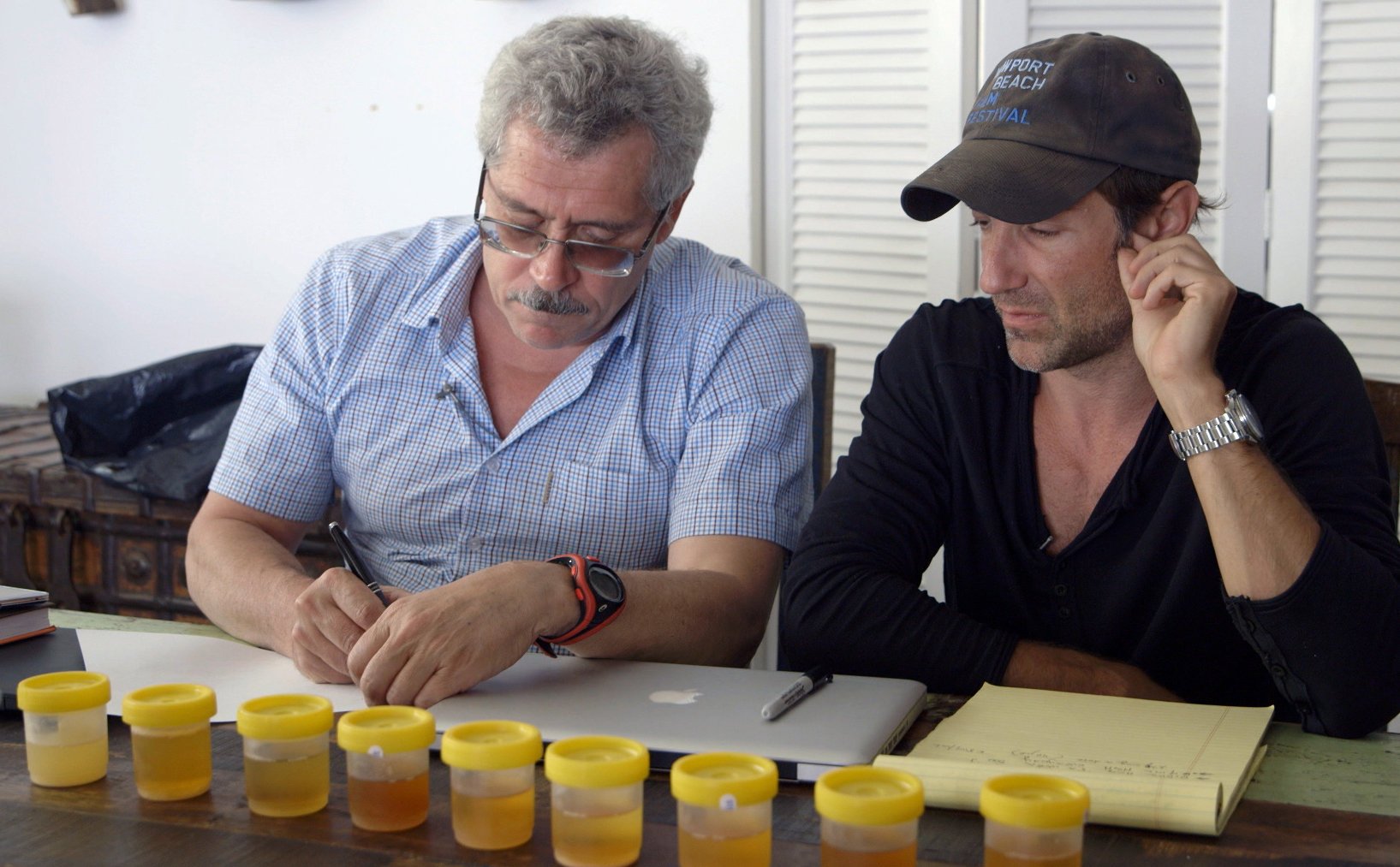Random Round-Up #4 (8/17/22 - 8/22/22)
Abbott Elementary (2021-Present)
Strong 5/10
Abbott Elementary is the clear offspring of the 21st century’s golden-age of sitcom cable television. There was Parks and Recreations (2009-2015), 30 Rock (2006-2013), and most pertinently, The Office (2005-2013); all great shows that comedically sensationalize mundane and redundant daily tasks at real-world occupations. Abbot Elementary includes itself within this genre of humorous melodrama in the format of a mockumentary, just as The Office did. Abbott Elementary also makes use of employing an quirky ensemble cast of characters with varying parallels to its predecessors. Janine Teagues (Quinta Brunson) is a blend of Leslie Knope’s (Parks and Recreations) ambitiously ignorant aspirations and Michael Scott’s (The Office) desire for making an individual impact. Gregory (Tyler James Williams) is a charmingly deadpan substitute teacher that has hints of Stanley’s (The Office) blunt regard for life, alongside the youthful obliviousness of Ryan (The Office). There is even a clear female counterpart to Creed (The Office) in Melissa Schemmenti (Lisa Ann Walter), who has the enigmatic status of the bizarre old man with a similarly concerning past.
It is incredibly apparent how Abbott Elementary wants you to perceive its characters, immediately cornering them into archetypes within the series’ pilot. I do find issue with the abundance of contrived material that is clearly inspired by the aforementioned shows. It is occasionally difficult to endure content that so frequently makes you recall prior successful renditions, as I found myself constantly reminded of classic moments that much of Abbott Elementary pales in comparison to. Regardless of the show’s lack of stylistic originality, Abbott Elementary shines in its searing satirization of American public education.
In just the first episode of the season, Janine has the simple request to buy new rugs; a request that principal Ava Coleman (Janelle James) brushes off. Barbara Howard (Sheryl Lee Ralph) is a hardened veteran of public education who has become desensitized to the recurring disappointment that she has experienced throughout her numerous years at the Philadelphia school. Janine looks up to Barbara for her mature outlook on life, but also does not want to submit to the same complacency. After a teacher is fired for kicking a kid (who apparently started the fight), Ava concedes to buying new rugs in order to cover up the controversy of the altercation. Instead of following through with this promise, the narcissistic principal buys a new sign to label the front of the school… with her on it. This conceited absentmindedness emphasizes the disconnect between those who manage and those who do the dirty work. Janine insists that "for primary classes, rugs are like a calming space for kids. It’s like a Xanax. Like a huge Xanax for kids to sit on". While this statement is absurdly humorous in nature, we then see a tender moment where the staff observes a student who skips lunch to sleep on the classroom rugs because it is “softer than what he has at home”. Abbott Elementary wants viewers to understand that education is not only a rite of passage throughout childhood, but a core aspect of one’s upbringing, and must be treated as such. The idiosyncrasies of the cast sometimes fall flat as quirky, but clean, cable comedy, but the nuances that hide beneath it mark the signs of a show that will stand the test of time regardless of its contrived style.
Persona (1966)
Strong 8/10
The word “persona” has numerous different meanings, such as; “the aspect of someone's character that is presented to or perceived by others”, “a role or character adopted by an author or an actor”, as well as it almost directly translates to the word “mask” from Latin. It is totally plausible to interpret Persona (1966) through the perception of any of these definitions.
Persona is the story of an actress, Elizabeth (Liv Ullmann) and a nurse named Alma (Bibi Andersson) who spend the summer together at a remote location in order to rehabilitate Elizabeth. Elizabeth is an actress who shockingly stopped talking in the middle of a performance, and has continued to live in a mute fashion. Opposite to her is Alma, who realizes at the start of their intimate time together that she has never had someone to confine any personal info to. Suddenly, roles are reversed and Alma becomes the case study, as she begins to reveal more and more about deep secrets in a way that seems therapeutic for the nurse. One particular story she tells is a lengthy and powerful monologue about a moment of sexual carelessness she had alongside a friend that resulted in an affair of epic nature. While Alma is retelling these events, traditional gender roles are suggestively called into question, as Alma depicts a dominant moment of female sexuality. Alma had cheated on her significant other and had become pregnant because of it, and although she weeps out of remorse for her actions, Elizabeth attacks her with an unwavering gaze that seems to be inquiring upon why a moment of female independence had results that were produced by a man.
More than this though is the obvious sexual tension between the duo. An aura of aggression begins to grow though because of it, as Alma begins to fully converse with herself in substitute for the lack of words that Elizabeth elicits. Is Alma actually developing feelings for Elizabeth, or is she just fueling a narcissistic sort of love? This question is only answered by ambiguity from director Ingmar Bergman’s striking cinematography that occasionally presents the curves of the couple’s bodies and faces as one amorphous shape, causing a physical indistinguishability, as well as a metaphorical one.
Montages throughout the film showcase many tragedies of the world; archival footage from the Holocaust, Vietnam War news clips, and a Buddhist monk engulfed in flames. Elizabeth watches in horror, suggesting that maybe her condition is actually an internal vow to discontinue her contributions to facades that mask the true chaos of the world. As an actress, that is quite literally her occupation. She must put on a show for those who would like to temporarily remove themselves from the present, so it is possible that she had grown tiresome of disguising reality. Towards the end of the film, Alma has embraced her diminishing individuality and Elizabeth has begun to orchestrate her movements. In a scene where Elizabeth’s husband arrives to visit his wife, the man is unable to differentiate the two and we see Elizabeth coaxing Alma into adopting the role of his partner. Even though Alma vehemently denies her identity crisis, she eventually finally leaves the home and a crew is revealed to have been filming her, possibly reinforcing that the nurse has fallen victim to the same fate that Elizabeth escaped.
Persona is a brutal introspection on human singularity, as well as the innate desire for affirmation. The film is stoic and blunt, but also manages to exhibit moments of extreme sensuality and intellectual contention through the fantastic performance of Bibi Andersson. There is no definite conclusion to come away with after a viewing experience of this utterly cinematic excursion, but the many concepts it proposes are subversively executed in a brilliant manner that calls for the utmost consideration.
Icarus (2017)
Strong 7/10
The story of Icarus is one that highlights the consequences of excessive indulgence and ignorant pride. For those unfamiliar with the tale, Icarus is a figure in Greek mythology who was tantalized by the seemingly limitless opportunities that being granted the ability to fly could bring him. Aware of his son’s brazen attitude, Icarus’ father warns him to not fly too high, but Icarus ignores this advice and is subsequently burned to death from flying too close to the sun. Icarus (2017) begins with a similar proposition of a man (director Bryan Fogel) who wants to observe the true effects of taking performance enhancing drugs (PEDs) in order to improve his amateur cycling outings. Although this introduction to the documentary is slightly inappropriate in regard to the rest of the film’s content, it offers the first parallel to Icarus in the form of athletes such as Lance Armstrong who succumbed to their own hubris. As Fogel steadily inches towards the sun, he connects with Dr. Grigory Rodchenkov, the orchestrator of Russia’s anti-doping operation, to mentor him throughout the process.
Icarus begins as an self-experiment, comparable to Free Solo (2018) or Super Size Me (2004), but the shocking details revealed as a result of Fogel’s growing relationship with Rodchenkov transitions the film into an active unfolding of events, more along the lines of Citizenfour (2014), which is ironically referenced throughout the film. Rodchenkov is different from Edward Snowden though; Snowden’s actions were done out of revolution, while Rodchenkov seemingly leverages this newfound spotlight from Fogel in order to protect himself. In the middle of Fogel’s project, allegations begin to surface of devious malpractice committed by Russia during past Olympic competitions, which Rodchenkov discloses are completely true. The doctor is actually able to confirm this because he was spearheading the systematic execution of the “anti-doping”, which consisted of switching dirty urine samples and other means of disguising drugged up Russian athletes. As this story takes the forefront of Fogel’s focus, the documentary switches from a personal commitment into accompanied observation. As Rodchenkov exposes Russia further, it becomes disheartening how many lies were fed to audiences for the sake of superficial glory. It grows to be more frightening than disheartening though, when one of Rodchenkov’s colleagues mysteriously dies soon after the doctor has embraced his ‘whistleblower’ status.
In Free Solo and Citizenfour, we witnessed life-or-death stakes that instilled such anxiety as a viewer knowing that this is not fiction. In contrast to these two films though, Dr. Rodchenkov is not immediately introduced to us as a martyr or a figurehead for some larger purpose, he is initially presented as a quirky, but personable, associate to Fogel’s passion project. As Rodchenkov faces more severe consequences, it is difficult to not root for this man that loves dogs, his wife and has an apparent self-awareness for his past crimes. More so than this, Fogel clearly maintains a genuine friendship with the doctor that reveals itself throughout the documentary. This intimacy is not found in a film like Citizenfour that strictly wants to analyze a series of events that feel inevitable, regardless of a camera being present. Who knows if Rodchenkov would have taken the position he did without the safety of his relationship to Fogel? The more the Russian doctor is in the spotlight, the more eyes are glued to his overall conundrum, leaving the Russian government with minimal leeway to possibly silence him. You could argue that this documentary was quite literally watching Rodchenkov crash down from the sun, but Fogel might have managed to ground him before his combustion.



